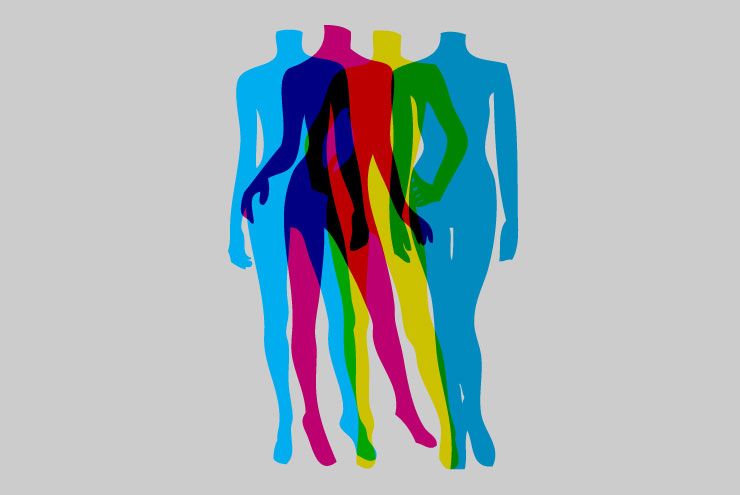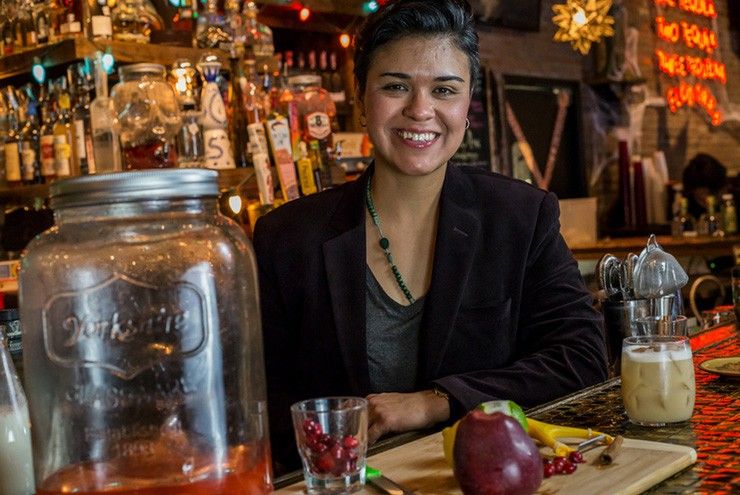By Barrett White
So, who is the man and who is the woman?
We’re both males. We’re partners. We share duties and don’t subscribe to traditional gender roles. At least, that’s how it is in my own relationship. And here we are, six years together, and people still believe it’s okay to ask me if my partner or I shapeshift into a lady behind closed doors, as if the notion that two people of the same gender can live together and share their lives, love, household chores, and career workload equally is somehow as difficult to grasp as hieroglyphs.
Okay, I’m being cynical. I know that’s not what they mean, but I digress—why do people think it’s okay to ask that of me, or of any other queer person in a same-sex relationship? My partner, the goofball that he is, offers this: “Next time [they ask], just be like, ‘we don’t have sex, we just absorb each other’s energy like photosynthesis.’”
I consulted with Carolyn Hendrix, a LCSW-supervisor in Houston. “I can’t speak for why anyone does anything, but from a theoretical perspective, it comes from a sense of otherness,” Hendrix says.“For someone who doesn’t identify with queer culture or the trans and gender-diverse communities, society has created an ‘us versus them’ [scenario], and that’s true for everything—gender, ethnicity, [socio-economic status], employment, ‘jocks versus nerds’—we’ve created this narrative to form the idea that ‘we’re not them,’ which creates that inappropriate curiosity.”
Yes, the cisgender, heterosexual population only has male-female relationships to base their understandings on, but I argue that still doesn’t equal a green light for them to ask invasive questions to queer folks. Perhaps it would help to think of it this way: In a cisgender, heterosexual relationship, men “top” women, right? Not necessarily. There are plenty of straight, cisgender men out there who enjoy pegging, for example. There are plenty of straight, cisgender men who enjoy submitting to a domme, too. And yet, with the myriad of ways for straight couples to have sex, we don’t see an endless parade of queer folks asking their straight brothers, parents, cousins, and friends who tops and who bottoms. Could that be, perhaps, because we understand that questions of this nature are wild invasions of privacy?
The fact that this courtesy of privacy is not extended to queer people is explained (albeit, not defended) by a licensed psychologist who, due to her status as a government employee, wishes to remain anonymous. “There are people who think that, because the LGBTQ community celebrates being ‘out and proud,’ that we are inviting straight people into our bedrooms,” she says. “It’s the very baseline, basic assumption that what we are proud of is how we have sex—two men, or two women. Again, very naïve. It is my experience that they believe that by being LGBTQ, we have consented to their questions automatically—because to them, the badge of ‘LGBTQ’ is the badge of ‘this is how I do sex.’”
This assumption stems from a lack of understanding of the community at large. Members of the LGBTQ community do much more than have sex with their partners. Pride celebrations are important because they celebrate our community of boundless love—not necessarily sex, and certainly not sex alone. As queer people, we form relationships with our partners (and yes, the majority of us have sex with them!), live with our partners, go shopping with our partners, appear in public with them, hold their hands, travel with them, kiss them at gay bars, and merely exist in public with them—all things that historically could have had us thrown in jail, beaten, or killed (and sometimes still do, even today). Our Pride celebrations cannot be chalked up to celebrations of same-sex intercourse—they’re celebrations of our culture of love and perseverance. If you can’t tell the difference—if you equate all of this to a celebration of intercourse alone—you have grossly misunderstood an entire community. And, I’m sorry to say, that misunderstanding does not excuse you of the transgression of assuming that we have all consented to your perverted probe into our sex lives.
Of course, this painfully awkward and entirely inappropriate discourse is not unique to conversations pertaining to sexuality—trans folks are subjected to questions like these ad nauseam. My plight as a queer man listening to straight family or friends ask about my sex life as if they’re entitled to it pales in comparison to that of trans individuals who deal with the cis nonsense of people who question what’s going on between their legs.
Lest we forget that this is not an offense perpetrated by the cisgender, heterosexual community alone. Cisgender queer folks are just as guilty of this offense toward trans folks. If we are to ever advance as a community (and if we are to continue to be incensed by offensive questions asked of us by straight people), we need to check our own voyeurism as it pertains to trans bodies and call it out when we see it. “With the trans and gender-diverse community, I think it’s just even more confusing for a cisgender person because they have a very concrete idea of what gender is, so they think of it as ‘penis and vagina,’” Hendrix says. “They think, ‘Well, if you don’t have surgery, then you’re not a real guy or a real woman,’” but if the tables are turned, and you have a male who identifies as cisgender and his penis is cut off [due to a medical procedure or accident], does that make him less of a man? Is he no longer male? No, of course not.”
It can be exhausting, the suggestion that it is eternally our responsibility to educate others, rather than it be theirs to do the legwork, to listen, and to educate themselves. When we find ourselves in these situations, how are we to respond without furthering our own embarrassment and aggravation, or alienating the person insisting on the question (that is, assuming this is someone we don’t want to alienate)? “As a minority group, we are already viewed as a reactive community by the majority,” says Ian Hammonds, an LMFT-associate and LPC-intern in Dallas. “I was on a plane and was asked these kinds of questions by a heterosexual man next to me, and instead of getting upset, I instead took the opportunity to explain to him the importance of mental health in our current climate and why these kinds of questions are not appropriate.”
“It’s hard to know the unknown, so people, again, will try to simplify and rationalize it as best they can. And while it may be difficult—and painful to a degree—it’s important to educate,” adds licensed counselor Sameer Abdullah. “If you don’t think you’re the individual prepared to educate, make a referral. If the topic is too hot-button and difficult for you to explain, refer others to someone you know and trust to explain the culture and community to them.”
Allies and accidental voyeurs—if you’re curious about our lifestyles and how we relate to one another and sincerely ask these questions because you believe they will help you to be a better ally, know this: Our sex lives and our bodies will never be your business unless we decide to share that with you—just as is the case with any of your other friends or family members. Your presence in our lives does not guarantee you access to this information, and frankly, it’s disgusting and offensive to assume that it does. To be a better ally, do your own research—talk less, listen more. Google is your friend, and while it will not tell you how we, individually, relate to one another or how we appear naked, it will tell you (long before we do) to mind your own business.
Now, go let your girlfriend peg you, bro. That’s your gig and I won’t ask you about it!







